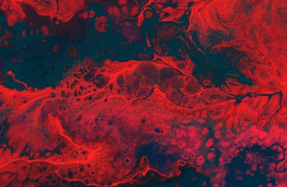Ariella Aïsha Azoulay: “It is not possible to decolonize the museum without decolonizing the world.”

Content warning: This interview contains descriptions of sexual assault.
It was only as an adult, when she read her father’s birth certificate, that the political theorist Ariella Aïsha Azoulay learned the name of her paternal grandmother—and the fact she was of Algerian descent. After that, Azoulay reclaimed the name her father had refused: Aïsha. “My father clearly did not want this name to circulate and be associated with our family, to taint the semi-white appearance he worked hard to acquire [in Israel],” Azoulay writes in her new book, Potential History: Unlearning Imperialism, She accuses her father of having “betrayed the ancestors,” condemning the logic of a man who had learned to conflate erasure with progress. This very logic convinced my own father that I didn’t need to know my grandfather’s name either, nor his reasons for migrating from India to Detroit in the early twentieth century. It was as if eliminating these significant details would eliminate his—my—difference.
Potential History is a project spanning centuries and nations, from the mass expulsion of Jews and Muslims from Spain in 1492 to Palestine today. It is a critique of and intervention in imperial knowledge production and the technologies that make it possible—museums, national archives, the discipline of history, the discourse of human rights, and the camera, which “made visible and acceptable imperial world destruction and legitimated the world’s construction on empire’s terms.” Azoulay, who, in addition to being an author, is a filmmaker and professor of modern culture and media at Brown University, expands upon a theory from her seminal book, Civil Imagination: A Political Ontology of Photography, by positioning the roots of photography in extraction and erasure. With Potential History, Azoulay aims “to make non-imperial sense out of existing knowledge that imperialism has manipulated and relegated to different domains.” This includes reimagining everything from timelines to political sovereignty to interpretations of individual photographs.
Of course, this work is not for the imagination alone. Azoulay, who disavows her Israeli citizenship, calls for open borders and the fundamental right to migration. She argues that people whose worlds have been destroyed by centuries of imperialism have the right to live near the objects that have been plundered from their culture and now sit in the “neutralizing” space of Western-style museums. In fact, she suggests, those objects might constitute the very “documentation” the countries hosting those museums demand of migrants.
I talked with Azoulay over Google Chat while she was in Berlin and I was in Brooklyn. She prefaced our discussion by saying that she tries to think and communicate in non-imperial terms. I understood this as an invitation to allow language to take unexpected turns. What followed was a dense, rich, daunting, and hopeful discussion about the (im)possibilities of decolonization, the potential of gallery spaces, and the invisible work of research. Central to Azoulay’s process—whether creating the contents of a book, a gallery exhibition, or a film—is refusing the role of the scholar who, as the expert, assigns meaning and “discovers” new knowledge. In practice, this involves tracing, cropping, cutting, juxtaposing, annotating, and erasing the texts from history’s totalizing narratives. Yet her process is even richer than that: is not only about the past, but about the enormous
You’re reading a preview, subscribe to read more.
Start your free 30 days





